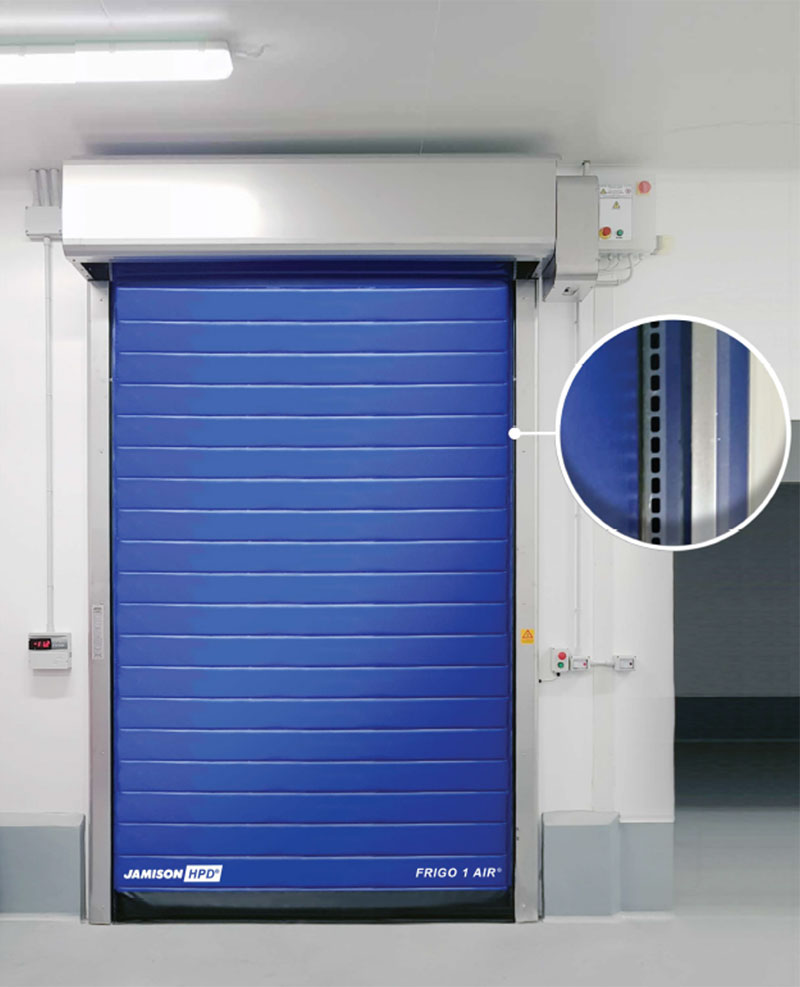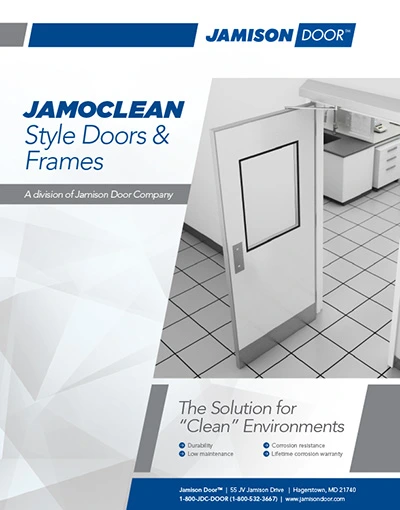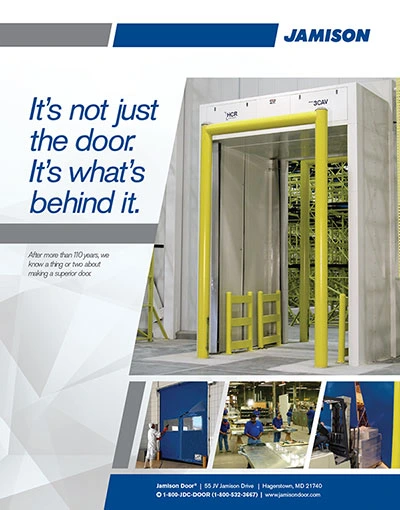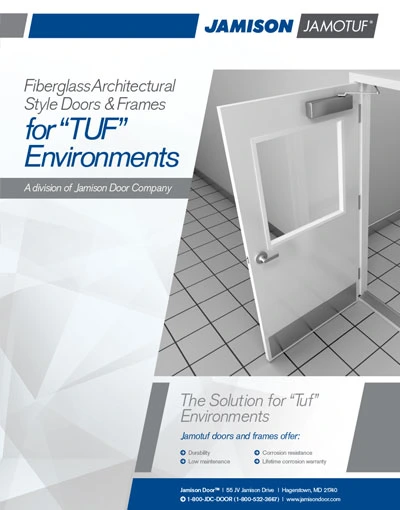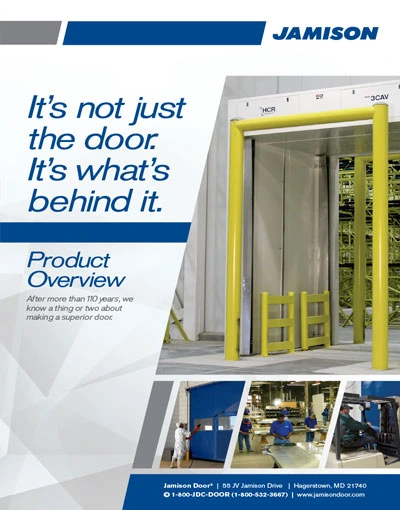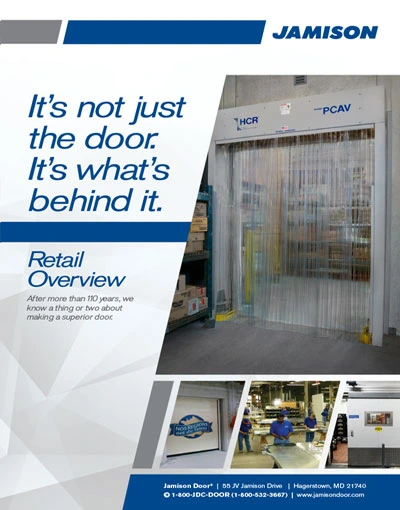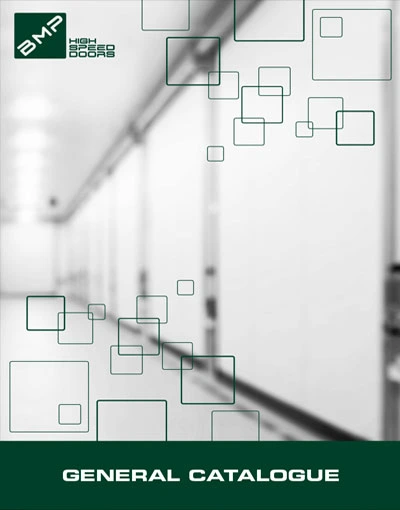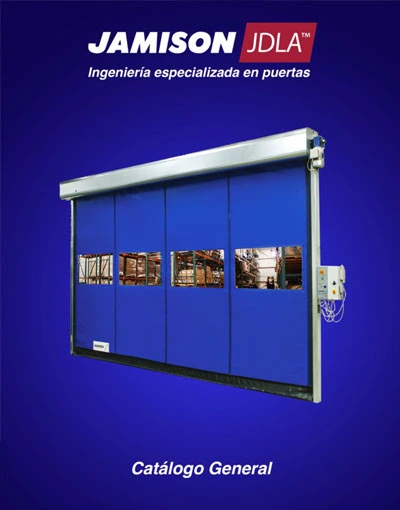When it comes to securing your commercial or industrial space, coiling doors, also known as overhead coiling doors, are a popular choice. These doors retract overhead, offering space-saving solutions, enhanced security, and improved functionality in their design. However, selecting the right materials for your coiling door is a critical decision that can impact your business’s security, energy efficiency, and overall aesthetics. In this guide, we will explore the various materials available for coiling doors and help you make an informed decision.
Understanding Coiling Doors
Before delving into the material options, let’s gain a better understanding of coiling doors and why they are so widely used in commercial and industrial settings. Coiling doors are a type of overhead door system that operates by rolling up vertically when opened. Coiling doors contrast with traditional overhead doors that use cables and hinges, as they’re made from individual metal slats that coil together.
Now that we have a better understanding of coiling doors, let’s explore the various materials you can choose from to ensure your coiling door meets your specific needs.
Materials Matters: Your Coiling Door Options
Choosing the right material for your coiling door is a crucial decision that depends on various factors, including security requirements, aesthetics, climate conditions, and the nature of your business operations. Let’s take a closer look at the primary materials available for coiling doors and their respective advantages:
Galvanized Steel
Best For: High security, durability, and weather resistance
People recognize galvanized steel coiling doors for their strength and durability. They are an ideal choice for businesses that prioritize security and need a door that can withstand harsh weather conditions. Here’s why galvanized steel is a popular material for coiling doors:
- Security: Galvanized steel doors offer excellent security, making them a top choice for businesses concerned about break-ins and vandalism.
- Durability: These doors are built to last, with resistance to corrosion, rust, and damage from external elements.
- Weather Resistance: Galvanized steel coiling doors are suitable for environments exposed to extreme weather conditions, including heavy rainfall and high winds.
- Low Maintenance: Like all coiling doors, galvanized steel doors require minimal maintenance, reducing long-term costs.
Stainless Steel
Best For: Hygiene-sensitive environments, aesthetics, and longevity
Stainless steel coiling doors are prized for their corrosion resistance and modern appearance. They are commonly used in industries where hygiene is critical, such as pharmaceuticals, food processing, and healthcare facilities. Here’s why stainless steel is a preferred material for coiling doors in such environments:
- Corrosion Resistance: Stainless steel is highly resistant to corrosion, making it ideal for environments where cleanliness and hygiene are paramount.
- Aesthetics: Stainless steel doors offer a sleek, contemporary appearance that enhances the overall aesthetics of the space.
- Longevity: These doors have a long lifespan and can withstand the rigors of daily use in demanding environments.
Aluminum
Best For: Lightweight applications, visibility, and versatility
Aluminum coiling doors are known for their lightweight properties, making them an excellent choice for spaces where heavy materials are unnecessary. They are often used in storefronts and other areas where visibility and aesthetics are essential. Here’s why aluminum is a popular material for coiling doors in such applications:
- Lightweight: Aluminum doors are easy to operate and reduce stress on door components, resulting in longer life.
- Visibility: These doors can be customized with windows or perforations to provide excellent visibility, even when the door is closed.
- Versatility: Aluminum coiling doors are highly versatile and can be adapted to a wide range of applications.
Insulated Materials
Best For: Temperature-sensitive goods, noise reduction, and energy efficiency
In some cases, you may require coiling doors that offer insulation properties to regulate indoor temperatures and reduce energy costs. Insulated coiling doors typically feature foam insulation inside the metal slats, which helps maintain a stable indoor climate. Here’s why you might opt for insulated materials for your coiling door:
- Temperature Control: Insulated coiling doors keep production areas warmer during winter months and cooler in the summer, creating a comfortable work environment.
- Noise Reduction: The foam insulation helps block the transfer of sound, making these doors suitable for noisy operations.
- Energy Efficiency: Insulated coiling doors can help reduce energy costs by minimizing temperature fluctuations.
Fire-Rated Materials
Best For: Fire protection, safety, and compliance
For businesses in industries where fire safety is a primary concern, fire-rated coiling doors are a necessity. These doors are designed to prevent the spread of flames, smoke, and gasses in the event of a fire, helping to protect both people and property. Here’s why you might choose fire-rated materials for your coiling door:
- Fire Protection: Fire-rated coiling doors are essential for businesses that need to comply with building codes and regulations related to fire safety.
- Smoke Seals: These doors are equipped with smoke seals to reduce the chances of smoke entering elevators and stairwells during a fire.
- Customized Fire Ratings: Fire-rated coiling doors are available with various fire ratings, ranging from 45 minutes up to 4 hours.
Security Grilles
Best For: Retail stores, ventilation, and brand promotion
Security grilles provide a unique solution for retail stores and businesses that want to strike a balance between security and visibility. These grilles are typically made from woven or nonwoven metal designs and offer several advantages:
- Custom-Fit Options: Security grilles can be custom-fitted to match the layout and needs of your business, whether you’re a pharmacy, parking garage, or restaurant.
- Material Choices: They are available in aluminum and steel, both of which are durable and maintain their shape over time.
- Brand Promotion: Some businesses opt for security grilles with unique etchings to promote their brand even when the doors are closed.
- Hidden Installations: Security grilles can be installed discreetly in overhead hoods while your business remains open for business.
Customization Options for Your Coiling Door
One of the great advantages of coiling doors is their flexibility and customization options. When selecting the material for your coiling door, it’s also essential to consider how you can tailor it to your specific needs. Here are some customization options to explore:
Size and Dimensions
Coiling doors can be manufactured to fit a wide range of sizes and dimensions, making them suitable for various applications. Whether you need a compact door for a service window or a large door for a warehouse loading dock, customization ensures a perfect fit.
Color and Finish
Choose a color and finish that complements your building’s aesthetics and brand identity. Many coiling door materials, such as galvanized steel and aluminum, can be powder-coated or finished in different colors to match your preferences.
Insulation Levels
If temperature control is essential, you can customize the insulation level of your coiling door. Different thicknesses of insulation can help maintain the desired indoor temperature, which is especially beneficial for businesses handling temperature-sensitive goods.
Windows and Perforations
To enhance visibility and allow natural light into your space, consider adding windows or perforations to your coiling door. This customization option proves particularly useful for businesses wanting to showcase their products or services even when the door is closed.
Security Features
Depending on your security needs, you can customize your coiling door with additional security features such as electronic access control systems, reinforced locking mechanisms, and intrusion detection sensors.
Operating Mechanisms
You can operate coiling doors manually or through various automated mechanisms. Customizing the operating mechanism allows you to choose the most convenient and efficient option for your business.
Branding and Signage
For businesses with a strong brand presence, consider incorporating branding elements and signage into your coiling door design. This not only promotes your brand but also adds a unique and personalized touch to your entrance.
Making Your Coiling Door a Perfect Fit for Your Business
In conclusion, selecting the right material for your coiling door is just one part of the decision-making process. Customization options play a crucial role in ensuring that your coiling door perfectly fits your business. Consider size, color, insulation, security features, and other customization options to create a coiling door that enhances security, functionality, and aesthetics.
With the guidance of experts like Jamison Door, you can explore these customization possibilities and design a coiling door that not only meets but exceeds your expectations. Contact Jamison Door today to discuss your coiling door project.

